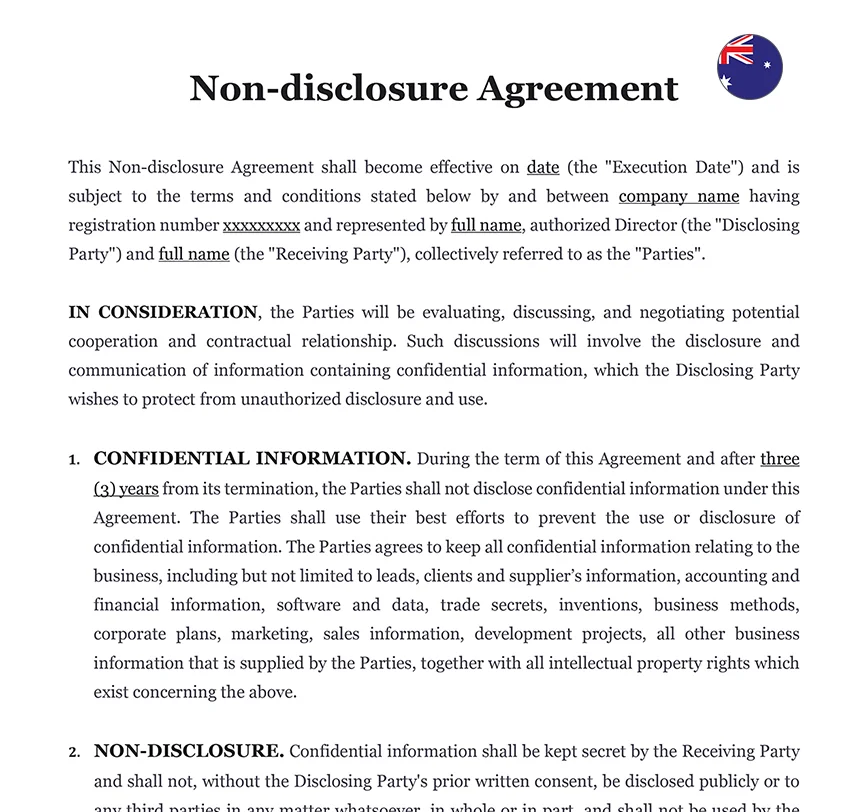The Importance of NDAs in Australia
A NDA is a legal contract that establishes confidentiality between parties to protect sensitive information from being disclosed to unauthorized individuals. This guide explains the significance of NDAs in Australia, highlighting their role in safeguarding business secrets and ensuring competitive advantage.
Understanding Non-Disclosure Agreements
NDAs are fundamental to protecting proprietary information.
1. Definition: An NDA is a contract that outlines confidential material, knowledge, or information that the parties wish to share with one another but restrict access to third parties.
2. Types: In Australia, NDAs can be unilateral (one-way) or bilateral (mutual), depending on whether one or both parties are disclosing confidential information.
3. Legal Framework: The enforceability of NDAs in Australia depends on the clarity of the agreement and adherence to legal standards.
Protecting Intellectual Property
Intellectual property is a valuable asset that requires protection from unauthorized use.
1. Trade Secrets: NDAs safeguard trade secrets, ensuring they are not disclosed to competitors or the public.
2. Patents and Inventions: Protect new inventions and ideas before filing for patents.
3. Designs and Models: Keep designs and prototypes confidential to maintain a competitive advantage.
4. Copyrights and Trademarks: Ensure that copyrighted material and trademarks are not misused or disclosed.
Business Transactions
NDAs are crucial during various business transactions to ensure confidentiality.
1. Mergers and Acquisitions: Protect sensitive information during negotiations and due diligence.
2. Partnerships and Joint Ventures: Safeguard proprietary information when entering into business partnerships. Similar considerations apply when drafting an architect contract or an interior design contract.
3. Investment Discussions: Ensure that potential investors do not disclose business plans or financial details.
4. Licensing Agreements: Maintain confidentiality when licensing technology or intellectual property.
Employment Agreements
Employees often have access to sensitive business information, making NDAs essential.
| ➤ Confidentiality Clauses: Include confidentiality clauses in employment contracts to protect business secrets. |
| ➤ Post-Employment: Ensure that former employees do not disclose confidential information after leaving the company. |
| ➤ Internal Policies: Implement policies and training to educate employees about the importance of confidentiality. |
| ➤ Legal Recourse: Define legal recourse and penalties for breaches of confidentiality by employees. |











